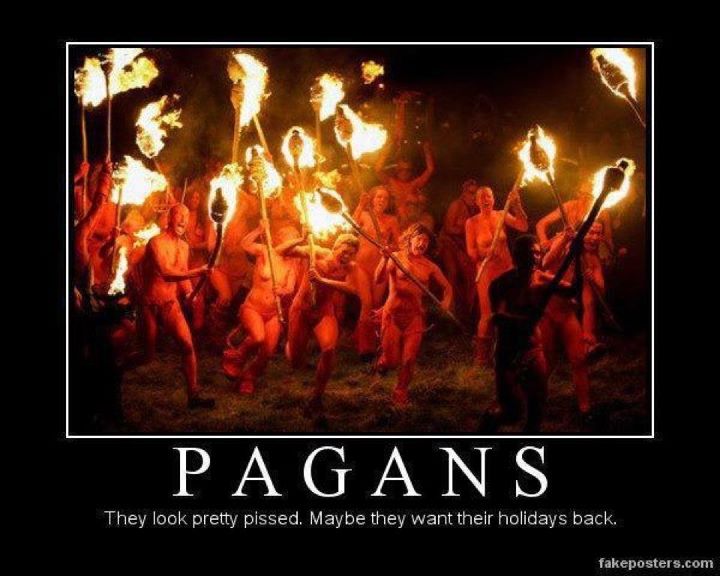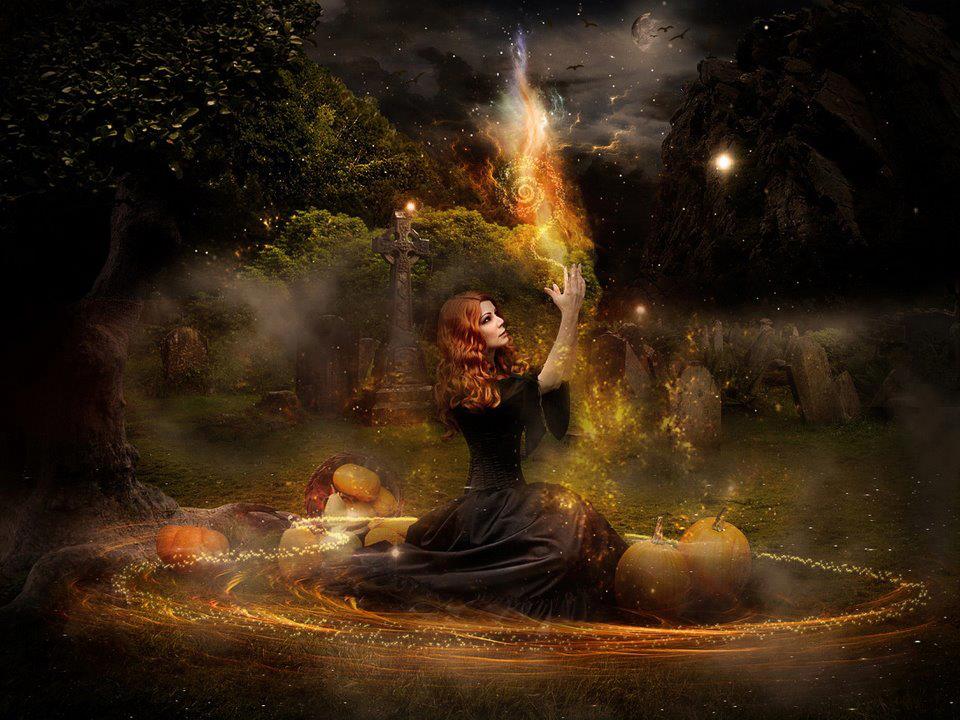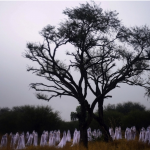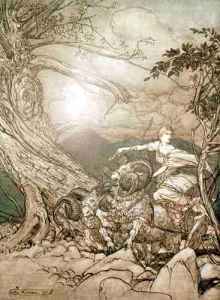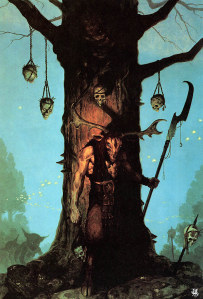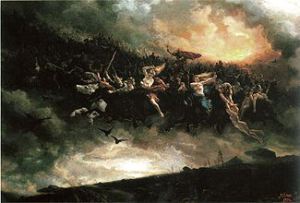Let me begin by saying, I love Halloween. I’ve always loved Halloween. For one thing, it is the only time of the year a straight guy can be flamboyant without apology in this homophobic American culture. I come by my love for Halloween naturally. It’s my mother’s favorite holiday. She used to make our costumes herself — and not just one but usually three, for each of us — one for school, one for church, and one for trick-or-treating. And we almost always won the costume contests. I love the costumes, the trick-or-treating, the whole scary-but-fun atmosphere.
So when I became Pagan, I was ready to embrace Halloween as a Pagan holy day. I was very disappointed to learn that most Neo-Wiccans/Neo-Pagans celebrate Samhain a kind of Pagan Day of the Dead or All Souls Day, with little to no connection to the secular celebration of Halloween. This explains the befuddled look I got from the Neo-Wiccan leader of my local CUUPS group years ago, when I, new to the group, asked her if we should wear costumes to the Samhain celebration.
First of all, there is only one major American holiday that corresponds directly with a Neo-Pagan holiday, and it’s Halloween. Christmas/Yule is a close second, with the moveable Easter feast coming in third, since it sometimes falls on or near the spring equinox. (Memorial Day and Labor Day are loosely related to Beltane and Mabon in that they mark the beginning and end of the American cultural summer.) But Halloween is ready-made for Pagan appropriation. Sure, it’s completely secularized (just like much of Christmas is). Jason Mankey has given a great history of the secular origins of Halloween here. But despite its modern and secular origins, Halloween just begs to be Pagan. I actually think those Christians who freak out about the (small-p) pagan-ness of Halloween are on to something. I mean, lots of us Pagans are real witches for gods’ sake!
Halloween was made for us! For one thing, it’s the only time of the year when we can do weird things around a bonfire at night in our backyard and not draw too much attention to ourselves. And while its origins are not ancient, it is a great example of what Jason Mankey calls “Rustic Paganism”. Like Morris Dancing, it isn’t an ancient pagan practice, but it’s a practice that feels pagan.
I undertand that many Neo-Pagans associate the day with their ancestors because the Celts supposedly believed that the “veil between the worlds” is thinnest on this day. And I respect that. But for me, nothing about Halloween makes me think of my great-grand parents. And then there is the high-spirited nature of Halloween. While I suppose a Day of the Dead could be a festive day, like it is in Mexico, visiting graves on Memorial Day is always a somber event for me. And it’s just hard to maintain the an attitude appropriate for one’s ancestors when everyone else around you is having an American Mardi Gras.
Rather than the ancestors, Halloween and this time of the year in general call to my mind another Pagan motif entirely: the Wild Hunt. For me, Halloween marks the time on the Wheel of the Year when the Dark God is crowned as the Holly King and leads the Wild Hunt as it emerges from Underworld to roam the winter countryside, with the Dark Queen riding beside him in her devouring aspect as the Huntress. I explain the connection to my kids this way:
“The legend of the Wild Hunt is behind many of the traditions of Halloween. According to legend, people wear masks to scare the ghosts and goblins that come out of the underworld at this time of the year. Because, if the Wild Hunt catches a person walking alone at night during this time of the year, it will carry them off to the underworld and they will become a part of the Wild Hunt themselves. But if you are wearing a scary mask, the Wild Hunt will think you are one of them, and will pass you by.”
Of course, this is not the true history behind the tradition of trick-or-treating, but it fits nicely, at least to my mind.
I like Halloween as a holy day so much that I break my general rule about celebrating the cross-quarters on their actual celestial date, which fall about from about a couple of days to a week after their traditional dates. The autumn cross-quarter this year falls on November 7.
I even like the name “Hallow’een” or “All Hallow’s Eve”. Hallows means “holy”, so All Hallows means “All Holy”, and to me that fits with the meaning of the day as a time for remembering the dark gods, because to Pagans they are holy too. The name “Hallow’een” says to me, “It’s all ‘hallow’ or sacred, even the dark and the frightening.”
I know lots of Pagans are attached by now to the name Samhain (pron. sah-win). In general, I dislike naming our holidays unphonetically, but at least there is some pagan precedent for the name, unlike Mabon. (The name originates in the Tochmarc Emire, and its use is consistent with the choice of other Irish names for the cross-quarter days.) It does bug me though when some people call it the Pagan New Year. For one thing, Pagans don’t treat it like the New Year, in spite of calling it that. For another, I have my doubts about whether it really was the Celtic New Year. According to Ronald Hutton, it is true that Samhain was the most important of the four Celtic festivals, but this does not necessarily mean it was considered the New Year’s Day. The Ulster tale of Echtra Nerai or Tain Bo Aingen, the “Adventures of Nera or the Cattle Raid of Angen”, refers to Samhain as “the end of the year”. It is possible, however, that it was meant that Samhain was the “[beginning of the] end of the year”, i.e., winter, without also representing the beginning of the new year, i.e., spring. Generally, it was much more common for ancient pagan peoples throughout the world to observe the New Year on or around the winter solstice or the spring equinox. Yule makes much more sense as the Pagan New Year to me.
I do think it is very important to have a Pagan holy day honoring our ancestors though; I just think it should be separate. For that reason, it makes sense to me to do something like the Catholic All Hallows Tridium and celebrate All Hallows on October 31st and then do a Pagan “All Souls” Day later, like on November 2. We could call it Pagan Remembrance Day or Ancestor Day or something like that. I’m sure this would bug some formerly-Catholic Pagans, but I love (re-)Paganizing Christian motifs, so it doesn’t both me.
Tell me what you think. Is Halloween a holy day for you? Do you experience any dissonance with honoring the ancestors while others are trick-or-treating?

